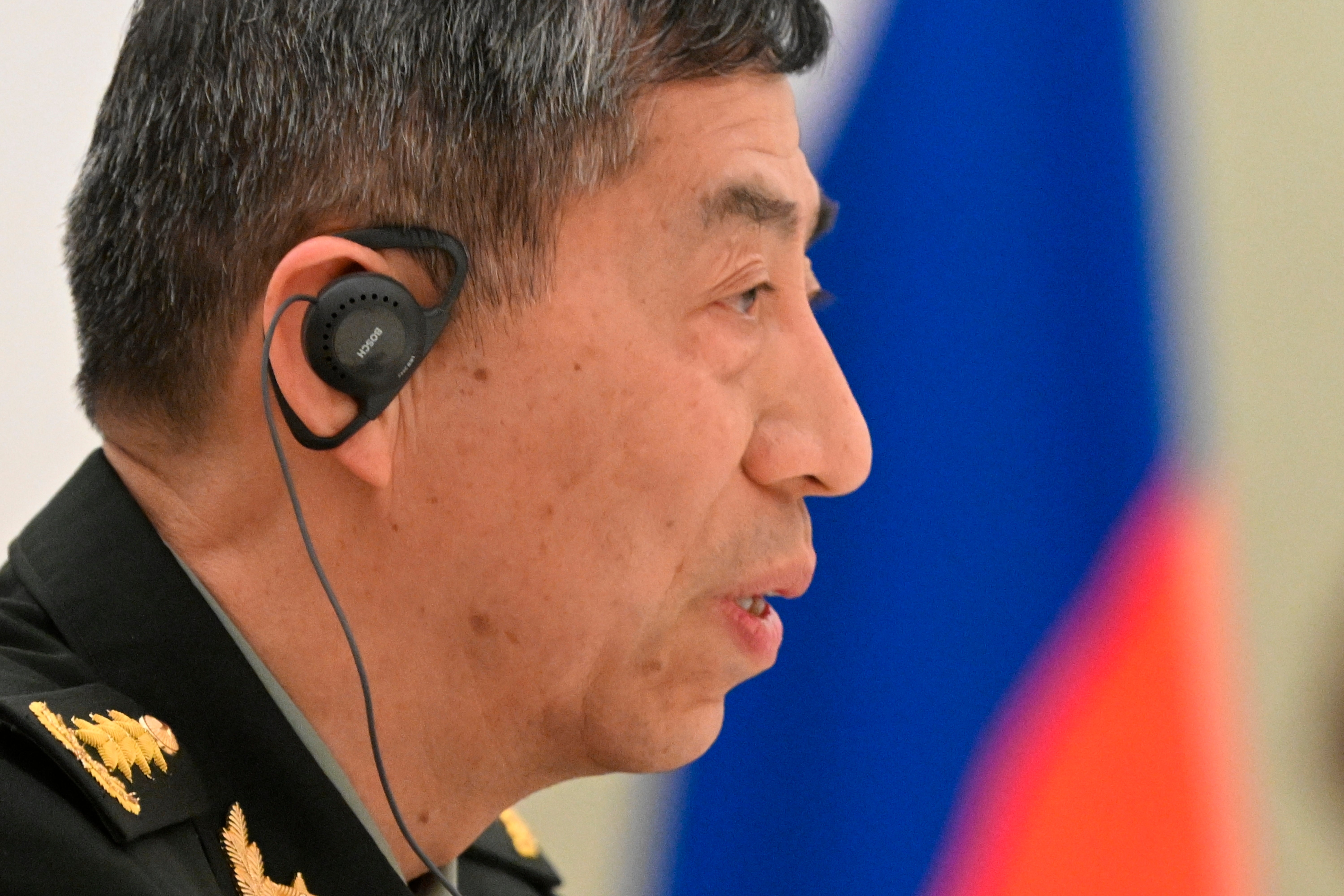Chinese Defense Minister Li to visit Russia and Belarus in show of support despite West's objections
Chinese Defense Minister Li Shangfu is visiting Russia and Belarus in a show of support for those nations which the West has sought to isolate over the Russian invasion of Ukraine

Your support helps us to tell the story
From reproductive rights to climate change to Big Tech, The Independent is on the ground when the story is developing. Whether it's investigating the financials of Elon Musk's pro-Trump PAC or producing our latest documentary, 'The A Word', which shines a light on the American women fighting for reproductive rights, we know how important it is to parse out the facts from the messaging.
At such a critical moment in US history, we need reporters on the ground. Your donation allows us to keep sending journalists to speak to both sides of the story.
The Independent is trusted by Americans across the entire political spectrum. And unlike many other quality news outlets, we choose not to lock Americans out of our reporting and analysis with paywalls. We believe quality journalism should be available to everyone, paid for by those who can afford it.
Your support makes all the difference.Chinese Defense Minister Li Shangfu is visiting Russia and Belarus in a show of support for those nations which the West has sought to isolate over Russia's invasion of Ukraine.
Li departed Monday on the six-day trip, during which he will deliver an address at the Moscow Conference on International Security and meet with defense leaders from Russia and other nations, the Defense Ministry said on its social media account, citing spokesperson Col. Wu Qian.
Russian Foreign Ministry Sergey Lavrov is due to speak at the conference on the topic of the “Majority World countries' search for ways to development outside Western mechanisms, including strengthening multilateral associations of a new type,” Russia's official TASS news agency reported.
It said representatives from about 100 countries and eight international organizations had been invited to attend.
The would "discuss various aspects of security in the conditions of the establishment of a multipolar world order, ways to restore constructive international cooperation in the context of aggressive claims by Euro-Atlantic elites for world domination,” it said, quoting the Russian Foreign Ministry spokesperson as saying.
Li's attendance underscores the drive by China and Russia to align their foreign policies in a bid to undermine the Western-led liberal-democratic world order, despite their economic and reputational costs.
That will be followed by a visit to close Russian ally Belarus, whose territory was partly used to stage last year’s invasion. While there, he will hold meetings and talks with Belarussian state and military leaders and visit military facilities, the ministry said.
China claims to be neutral in the conflict, but has accused the U.S. and its allies of provoking Russia and has maintained robust economic, diplomatic and trade ties with Moscow.
China has reliably backed Russia in opposing U.S. condemnation of the Ukraine invasion in international forums, but says it won’t provide arms to either side in the war.
Li, who is barred from visiting the U.S. over arms sales he oversaw with Russia, visited Russia just last month to reaffirm military relations in the first formal military talks between the friendly neighbors since a short-lived mutiny by Russian mercenary group Wagner.
Last month also saw a pair of Russian navy ships visit China and hold a series of joint drills.
In contrast to his close ties with Russia, Li has shunned all contact with his U.S. counterpart Lloyd Austin, turning down a meeting with him at a recent forum in Singapore and refusing to take his phone call following the recent shooting down of a suspected Chinese spy balloon that has crossed the continental U.S.
That's believed to be an outcome of the U.S. sanctions against him, the balloon incident, U.S. support for self-governing Taiwan that China claims as its own territory, disputes over China's aggressive actions in the South China Sea and an ongoing row over over trade and technology.